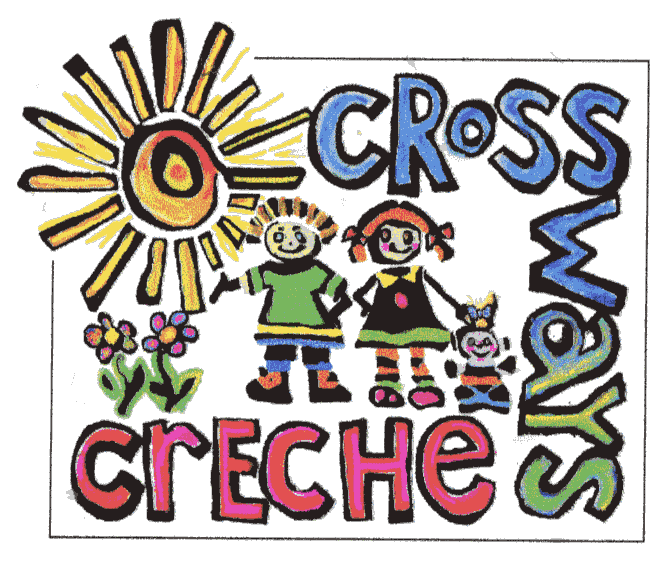Rationale: (why do we need this policy?) Relationships are at the heart of early learning. At Crossways, children build warm, secure relationships with kaiako in which learning of emotional and social competence that children need for their holistic well-being is nurtured and promoted. Children learn and develop to their potential in a respectful, reciprocal, caring environment that is inclusive, mana-enhancing and culturally informed. Kaiako are informed and equipped with teaching practice for supporting children to initiate and maintain relationships with other children.
Objectives: (What do we hope to achieve?) Warm, encouraging, respectful and trusting relationships are promoted and enjoyed by all at Crossways. Positive guidance and conflict solving ensures mana of every individual is protected and enhanced. To set guidelines for supporting children’s social and emotional competence and empowering them to initiate, develop, maintain relationships, and solve problems. To promote shared values of manaakitanga, whanaugatanga, kotahitanga, arohatanga To ensure the environment is engaging, inclusive, supportive, and fair for all children.
Guidelines: (How will we achieve it?) To enhance and protect mana Kaiako can
- Listen and observe with integrity
- Show aroha and warmth
- Give considered understanding guidance
- Provide mindful boundaries
- Value consistency
- Treasure uniqueness
- Support agency and consequences
- Recognise inquisitiveness
- Sustain connection
- Draw on each other support
Creating a supportive environment: Te taiao manaaki
- Kaiako establish a welcoming, positive and safe climate, that is culturally responsive to the values of whànau and their communities
- Tamariki build competence that is cultivated in a caring, respectful and inclusive environment.
- Trust grows from friendly, consistent, and responsive relationships and routines established and maintained over time.
- Co-constructed values are visible, open to discussion, and collaboratively promoted.
Promoting emotional competence: Te whakapakari whatumanawa
- Kaiako mentor tamariki in building resilience and a sense of self-worth
- Tamariki are supported to explore and regulate their emotions
- Positive guidance supports Tamariki during heightened emotions.
Promoting social competence: Ngā pūkenga whakaratarata
- The children have opportunities to initiate, problem-solve, and experiment ways to maintain relationships.
- Tuakana-Teina relationships are valued and create opportunities for tamariki to teach each other and to lead.
- Kaiako nurture tamariki capabilities in effective communication, self-control and empathy
Supporting learning and engagement: Te hāpai ako me te whaiwāhitanga
- Kaiako support each child’s learning and growth through considered and intentional practice that supports them to manage their learning.
- Kaiako build knowledge and ensure learning opportunity are inclusive and culturally responsive Transitions are carefully and thoughtfully supported.
- The learning environment is intriguing, supporting opportunities for discovery, curiosity, wonder and fun.
Understanding behaviour: Ngā tūmomo whanonga
- Teachers use positive, respectful, and consistent guidance to support children’s social and emotional competence.
- Kaiako should question, what is the purpose of the behavior, exploring context in order to understand the behavior.
- Kaiako should be willing to look beyond behavior to see what it may be communicating about a child’s disposition, wellbeing, connectedness, self-esteem, understandings, anxieties, or tensions
- Kaiako support and use a preventative approach to reduce recurrence of negative behavior
- Behavior kaupapa should be co-constructed by kaiako tamariki and whānau, be culturally located, value diverse ways of knowing and be influenced by a holistic perspective.
Issues of harm
- Physical restraint will not be used except as necessary to ensure a child’s safety or that of others, and then only for as long as is necessary for control of the situation and to protect all from harm.
- No child is subjected to any form of physical ill-treatment, solitary confinement, immobilization, or deprivation of food, drink, warmth, shelter or protection.
- If risk of physical or emotional harm, kaiako must promptly intervene to prevent and protect. Intimidating interactions between children such as shouting, pushing, kicking, biting, name calling, exclusion of others etc require immediate close attention.
- If harmful behaviour occurs repeatedly, teachers will inform the parents of children involved and engage or include them in development of a positive guidance plan.
References He Māpuna te Tamaiti, Supporting Social and Emotional Competence in Early Learning (2019) Providing Positive Guidelines - Ministry of Education, www.education.govt.nz/assets/Documents/Early-Childhood/ProvidingPositiveGuidance.pdf TE WHĀRIKI Belonging - Goal 4: Children experience an environment where they know the limits and boundaries of acceptable behaviour.
Approved date: March 2022 Review date: March 2023